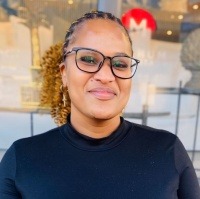DEFENDING WOMEN'S SPORTS SHOULDN'T BE CONTROVERSIAL - BUT IT IS
ALM No.79, August 2025
ESSAYS


Eligibility for female sport should be based on female sex, not perceived “femininity“ of the athlete
People don’t like when women talk about boundaries. Especially when those boundaries challenge institutions. Especially when they make someone uncomfortable. But discomfort is not oppression. Boundaries are not violence. And fairness is not bigotry.
Let’s make this clear. This is not about hating anyone with a DSD (Differences in Sex Development) condition. This is not about denying someone’s humanity. It’s about what sports are and are supposed to be.
Sports are built on regulation, classification, and fair play. That is their entire premise: to reduce natural and unfair advantages so athletes can compete on equal terms. Weight classes exist for a reason. Gender divisions exist for a reason. Without these systems, elite competition collapses into chaos.
And yet again, women are being asked to carry the burden of someone else’s exception.
Angela Carini didn’t stay silent. She refused to step into the ring with someone who had failed sex testing. And because she spoke up, we’re finally talking about it. Had she kept quiet, like so many others have out of fear, this conversation wouldn’t be happening. And once again, women’s bodies would be the collateral.
There is no question that people with DSD conditions deserve dignity, compassion, and a future in sports. But that future cannot come at the expense of women’s safety, opportunity, or fairness.
The facts are not hateful. They are material.
A female body requires more body fat just to maintain basic health: hormonal function, fertility, menstruation, cognition. A male body can operate with significantly less fat. In combat sports like boxing, where athletes compete by weight class, this creates a physical imbalance that cannot be trained away.
Take the 57kg category. A woman at 14 percent body fat carries around 8 kilograms of fat. A male-bodied athlete in the same category might carry 5 kilograms of fat, giving them more room for lean muscle mass and height. That’s 3 kilograms of functional advantage. That’s not opinion. That’s math. That’s physiology. That’s physics.
Height means longer reach. More lean mass means more power. Punch force is directly correlated to lean body mass. In boxing, these differences are everything. It’s not just unfair. It’s dangerous.
And when people say, “But she lost to other women before,” that misses the point entirely. This isn’t about a single fight. This is about setting a precedent that erodes protections for women across the board. About telling young female athletes that no matter how hard they train, they may be forced to compete against someone whose body was never subject to the same biological limits.
This is not a grey area. It’s a loophole. And it’s being exploited.
DSD conditions are real. They are complex. They can be tragic. But sports cannot be governed by the exception. Because women’s sports, already underfunded, undervalued, and disrespected, will bear the cost.
Fairness means regulating advantage, not romanticizing struggle. A heartbreaking personal story does not erase biological advantage. No one is saying someone with a DSD condition should be erased from sport. We are saying they should not override the systems in place to protect women.
And no, wanting fairness doesn’t make you cruel.
Disabled athletes don’t compete against abled athletes. They have their own categories. Not because they’re lesser, but because they deserve fair, equalized competition.
Why is it so controversial to apply that same logic here?
Creating a DSD category wouldn’t erase anyone. It would recognize difference. And treat athletes with respect. All athletes. Women included.
When we pretend that elite women can simply try harder against bodies that weren’t built like theirs, we place the burden of inequality on the ones already disadvantaged. We do what patriarchy has always done: demand that women overperform just to survive.
And the worst part? Some will call this cruelty. Some will say that even naming this imbalance is transphobic, bigoted, or mean.
But there is nothing kind about asking girls and women to sacrifice their safety and future so institutions can avoid a hard conversation.
There is nothing hateful about protecting fairness.
There is something deeply wrong with a world that calls women bigots for defending their own spaces but stays silent while they're pushed out of them.
Let people with DSD conditions compete, absolutely. But do not let that competition erase women.
Let there be new categories. Let there be new pathways. But do not let empathy turn into erasure.
If your idea of fairness requires sacrificing girls, it was never fair to begin with.
And let’s be clear about this too. Athletes who cheat, fail sex testing, or manipulate loopholes to gain unfair access to women’s categories should be banned from the games. Not suspended. Not softly redirected. Banned. Because integrity matters.
Women’s sports are not a political testing ground. They are not experimental spaces where fairness is negotiable. They are the product of decades of struggle for access, for funding, for dignity. And we are not going backwards.
This is not just about one fight or one Olympics.
This is about saving women’s sports.
Because if women are not allowed to compete against peers who share their biology, then what we’re watching is not a fair match. It’s a performance.
Let’s not wait until girls stop showing up before we realize how much we’ve already lost.
We need sex-based categories. We need governing bodies that don’t flinch. We need to protect girls who dare to dream.
And above all, we need to stop calling justice offensive.
Sonia Albert is a South African writer of Xhosa heritage whose work explores trauma, womanhood, silence, and survival. She holds a degree in Political Science and History and writes with a deep commitment to feminism, justice, and breaking generational cycles. Living in one of the rape capitals of the world, Sonia feels a responsibility — not just as a writer, but as a mother to a curious five-year-old daughter and an aunt to a strong-willed seven-year-old niece—to speak honestly about the realities many would rather ignore. Like so many women, she is also a survivor of male violence. Her writing is both personal and political: a space for truth-telling, healing, and refusing to stay silent.

